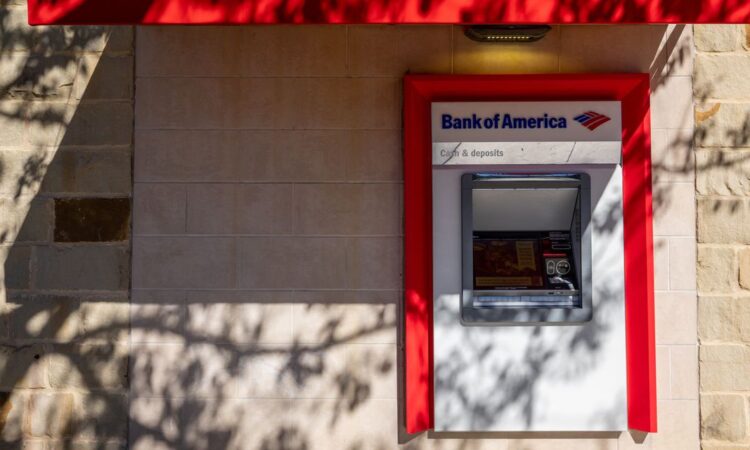Investors jump into European stocks at fastest pace in nearly a year as U.S. equity inflows remain muted: BofA Global

Investors poured $3.4 billion into European stock funds in the week to Wednesday, as slowing inflation in Europe and China’s relaxation of strict zero-Covid policies made investors hunt for gains in non-U.S. equities, according to analysts at BofA Global Research, citing EPFR Global data in a weekly note.
The weekly inflows into European stock funds were the largest since February 2022, and is the second straight week of inflows following an entire year of outflows (see chart below).
SOURCE: BOFA GLOBAL INVESTMENT STRATEGY, EPFR
Meanwhile, U.S. equity funds witnessed their first weekly inflow in four weeks. BofA strategists said there were $300 million of inflows to U.S. stock funds in the week through Jan. 25, the first positive flow in a month.
The BofA data also showed emerging-market debt and equity saw their strongest inflows in almost two years, averaging $7.1 billion over the last four weeks.
BofA also said there was the strongest inflow to investment-grade and high-yield bonds since Sept. 21, with average weekly inflows of $7.7 billion over the past four weeks.
These flows indicate that the current investor conviction is solely limited to emerging markets and investment-grade bond, said Michael Hartnett, chief investment strategist at BofA Global Research.
See: Stock-market investors dump U.S. for international equities. Is it time to join in?
Investors are moving money out of U.S. equities and pouring money into international stock markets this year as a weaker dollar prompts investors to rediscover stocks in Asia, Europe, and elsewhere. A recent record outperformance of European stocks against their U.S. peers also made rest-of-world stocks far more attractive to U.S. investors.
The MSCI EAFE index
990300,
which tracks the performance of stocks in developed countries and excludes the U.S. and Canada, climbed 16% over the past three months, while the MSCI Emerging Markets Index
891800,
has risen 19% from its mid-October lows. That compared with a 13% return in the MSCI USA
984000,
showing the large and mid-cap segments of the U.S. market, according to Dow Jones Market Data.
BofA strategists also noted that as the Federal Reserve keeps tightening its monetary policy, cash held in U.S. money market funds has hit a record high of $4.8 trillion, which indicates there are “still lots of liquidity sloshing around.”
A money market fund is a type of mutual fund that invests in cash and low-risk, short-term debt securities. Money market accounts and funds are always considered to have less risk than their stock and bond counterparts, so it could be a safe heaven to park cash when the stock market is volatile.
Strategists at BofA said all the indicators in the U.S. economy are signaling a “hard landing” in 2023, but “another tightening of financial conditions this spring may be required to tip a U.S. economy currently growing >7% in nominal terms into the recession the consensus craves.”
U.S. stock indexes traded higher on Friday after the personal consumption expenditure price index (PCE), the Federal Reserve’s preferred measure of inflation, showed consumer spending fell for a second straight month in December. The S&P 500
SPX,
gained 0.4%, while the Dow Jones Industrial Average
DJIA,
rose 0.3%. The Nasdaq Composite
COMP,
advanced 1% and rallied 12.2% for the month, making the tech-heavy index on pace to record it best start to the year in over two decades, according to Dow Jones Market Data.





